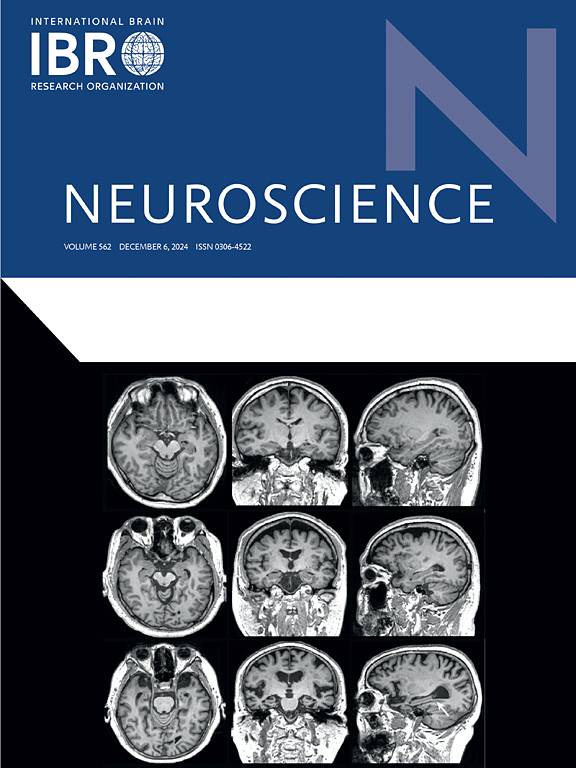TGF-β1通路在阿尔茨海默病和抑郁症中的研究进展:抗抑郁药可能的恢复潜力
IF 2.8
3区 医学
Q2 NEUROSCIENCES
引用次数: 0
摘要
阿尔茨海默病(AD)是最常见的痴呆症类型,其患病率正在迅速增加,而最常见的精神疾病重度抑郁症(MDD)继续构成重大的全球卫生保健挑战。最近的假设表明,阿尔茨海默病和重度抑郁症可能是相互关联的,可能共享共同的病理生理机制。一个可能的中心环节是转化生长因子-β1 (TGF-β1)途径。TGF-β1(一种参与炎症反应的细胞因子)水平降低在两种情况下都被观察到。在AD中,TGF-β1的减少可能导致神经退行性变和细胞凋亡,而在MDD中,它可能导致神经递质失调。TGF-β1的 + 10C/C基因型可能增加对这两种疾病的易感性。此外,与非痴呆性AD患者相比,非痴呆性抑郁症患者的皮质β-淀粉样蛋白(Aβ)检测和抑郁性AD患者的Aβ水平升高可能表明重叠机制。这些发现引起了人们对抗抑郁药(包括SSRIs、SNRIs、TeCAs、TCAs和氯胺酮)是否有治疗AD的潜力的兴趣。一些临床前和早期临床研究表明,某些抗抑郁药,如SSRIs(氟西汀、舍曲林、氟伏沙明、沃替西汀)、SNRIs(文拉法辛)和氯胺酮,可能发挥神经保护作用或调节Aβ毒性。然而,证据仍然不一致,有时甚至相互矛盾。此外,可能的副作用,包括长期使用抗抑郁药可能会加重认知能力下降或通过PI3K/Akt/mTOR等途径加速细胞衰老的风险,已被报道。这些不确定性突出了进一步严格调查的必要性,以确定抗抑郁药是否可以代表阿尔茨海默病的可行治疗策略。本文章由计算机程序翻译,如有差异,请以英文原文为准。
A review of the TGF-β1 pathway in Alzheimer’s disease and depression: Possible restoration potential of antidepressants
Alzheimer’s Disease (AD), the most common type of dementia, is increasing rapidly in prevalence, while Major Depressive Disorder (MDD), the most frequent psychiatric condition, continues to pose significant global healthcare challenges. Recent hypotheses suggest that AD and MDD might be interrelated, potentially sharing common pathophysiological mechanisms. One possible central link is the Transforming Growth Factor-beta 1 (TGF-β1) pathway. Reduced TGF-β1 levels, a cytokine involved in inflammatory responses, have been observed in both conditions. In AD, diminished TGF-β1 might contribute to neurodegeneration and apoptosis, whereas in MDD it might lead to neurotransmitter dysregulation. The + 10C/C genotype of TGF-β1 may increase susceptibility to both disorders. Additionally, the detection of cortical β-amyloid (Aβ) in non-demented depressed patients and elevated Aβ levels in depressed AD patients compared with non-depressed AD patients might indicate overlapping mechanisms. These findings have led to growing interest in whether antidepressants, including SSRIs, SNRIs, TeCAs, TCAs, and ketamine, might have therapeutic potential in AD. Some preclinical and early clinical studies suggest that certain antidepressants, such as SSRIs (fluoxetine, sertraline, fluvoxamine, vortioxetine), SNRIs (venlafaxine), and ketamine, may exert neuroprotective effects or modulate Aβ toxicity. However, the evidence remains inconsistent and sometimes contradictory. Moreover, possible adverse effects, including the risk that long-term antidepressant use might worsen cognitive decline or accelerate cellular aging via pathways such as PI3K/Akt/mTOR, have been reported. These uncertainties highlight the need for further rigorous investigation to determine whether antidepressants could represent a viable therapeutic strategy in Alzheimer’s Disease.
求助全文
通过发布文献求助,成功后即可免费获取论文全文。
去求助
来源期刊

Neuroscience
医学-神经科学
CiteScore
6.20
自引率
0.00%
发文量
394
审稿时长
52 days
期刊介绍:
Neuroscience publishes papers describing the results of original research on any aspect of the scientific study of the nervous system. Any paper, however short, will be considered for publication provided that it reports significant, new and carefully confirmed findings with full experimental details.
 求助内容:
求助内容: 应助结果提醒方式:
应助结果提醒方式:


